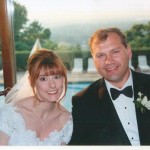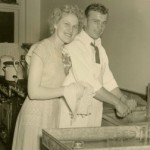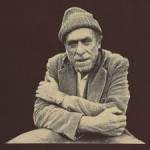From the Legal Talk Network, check out this great interview with Law Professor, Brian Clarke as he shorts his personal struggle with depression. Listen to the Podcast
Lawyers & Depression
Lawyers In Search of a Soul
From the blog Lawyers in Search of Soul, veteran attorney Tom Cox writes, Perhaps the most soul-crushing consequence of attempting to maintain a charade of perfection, however, was the inevitable isolation and fear of acknowledging and sharing fully of oneself with friends and colleagues.” Read the Blog
We Are Scared, But Here Is Why We Shouldn’t Try Too Hard To Get Over Our Fears
Lawyer Casey Berman writes, “While many of us view fears as something to overcome, a major element of success and personal development and growth is the realization that these fears never really go away. They are always with us. The secret is not in necessarily extinguishing them, but in mitigating them. Read the Blog
Summer On My Mind
I’m in Ottawa, Canada now. I’m on vacation with my family in this capital of Canada. It’s about a 5-hour drive from Buffalo, my hometown, and I’ve never been here before. It has a European sensibility with historical buildings everywhere. 
And it’s been hot; steamy, lava-like hot. But having endured yet another merciless Buffalo winter where the bitter cold felt epoxied to my hands and feet, I can’t complain.
I’m an early riser, and I’m no different on vacation. Whatever town I’m in, the first place I look for is a Starbucks. Many Ottawans, however, seems to pooh-pooh that dark brew from Seattle. “Go organic and go local, man,” says my hotel concierge; a pasty, redheaded young man of maybe twenty-two who looked fifteen named, “Brad.”
So here I am at Bridgehead, a chain that you can only find in Ottawa, that serves “organic, fair-traded and freshly roasted” coffee. The interior of the place is decorated with IKEA furniture with giant windows letting in morning light muted by today’s grey, watercolored clouds.
I’ve been feeling pretty grateful, lately. Maybe it’s the summer sun or the cyclical nature of my moods, but I feel happy. Waking up this morning, my wife and daughter were still asleep. I just celebrated my 18th year anniversary and my daughter is entering her sophomore year in high school.  A few weeks ago, I received my 25-year pin from my bar association to commemorate my silver anniversary in the profession. My mom’s been gone four years and I’m 35-five years removed from my high school graduation. Check out the blog I wrote for my 30th high school reunion.
A few weeks ago, I received my 25-year pin from my bar association to commemorate my silver anniversary in the profession. My mom’s been gone four years and I’m 35-five years removed from my high school graduation. Check out the blog I wrote for my 30th high school reunion.
I have a lot less hair, but I think a bit more wisdom. A piece in the New York Times took a stab at what wisdom is:
“They learn from previous negative experiences. They are able to step outside themselves and assess a troubling situation with calm reflection. They recast a crisis as a problem to be addressed, a puzzle to be solved. They take action in situations they can control and accept the inability to do so when matters are outside their control.”
Maybe. But the few people I’ve met in my life that I think wise, are more than that. They have warmth of heart; an appreciation of life despite its troubles and the occasional tragedies that everyone is sure to be struck with if one lives long enough.
Sitting here sipping my coffee in my middle-aged self, I don’t really know how wise I am. But I do know that I’ve had more than my share of blessings and good fortune to be wise enough to smile in appreciation on this summer’s day.
As Mark Twain wrote, “Wrinkles should merely indicate where the smiles have been.”
Here’s to more wrinkles.
The War In My Father’s Head
What a cruel thing is war; to separate and destroy families and friends, and mar the purest joys and happiness God has granted us in this world; to fill our hearts with hatred instead of love for our neighbors and to devastate the fair face of the earth. – Confederate General Robert E. Lee
Depression has many roots. Several of them anchored in the deep soil of our past.
I dug down into that ground last week. It was the 70th anniversary of D-Day; America’s landing in Normandy and entry into World War II. Watching all the television tributes to these now old and fading veterans, I thought of my dad.
The Great War
My father enlisted in the Navy in 1944. He was 18 years old. He fought on a destroyer ship in the Pacific theater. He saw many of his young buddies meet horrible deaths.
The war not only took a devastating psychological toll on him, but also his family in the years that were to unfold. In a very real sense, my mom, my siblings and I were also casualties of that war that never ceased in my dad’s head.
While he died in 1981, he’s still on my mind some 33 years later. I’ve gone from a young man to middle-aged, from a teenager in college to a lawyer about to mark my twenty-fifth year in the profession. I can’t help but look back at him and our time together as father and son. To the man he was and the man I’ve become.
Looking Back
I read a New York Times’ review of a book out about J.D. Salinger, author of The Catcher in the Rye. The article noted that Salinger, who served in the infantry during WWII in Europe, witnessed a lot of death and mayhem and struggled with depression his whole life:
“Salinger’s experiences during WWII heightened his sense of alienation. The war left him with deep psychological scars, branding ‘every aspect’ of his personality and reverberating through his writings. Salinger had suffered from depression for years, perhaps throughout his entire life, and was at times afflicted by episodes so intense that he could not relate to others.”
Like Salinger, my father came back from the war a broken man. He, too, would also have trouble relating to others. He had frequent nightmares. As children, we heard his screams behind our parent’s bedroom door. When he wasn’t raging, he was usually drunk. When he wasn’t angry and violent, he was depressed.
Dad survived his years of PTSD by drinking. Cheap beer and bottom shelf whiskey. He became a hard-core alcoholic. It gave him a brief respite from the demons shouting in his head. A sort of dying to a day of struggle in the hope that he would wake up the next day and all his pain would be gone.
Writer and hard-core drinker Charles Bukowski wrote about this type of dying,
“Drinking is an emotional thing. It joggles you out of the standardism of everyday life, out of everything being the same. It yanks you out of your body and your mind and throws you against the wall. I have the feeling that drinking is a form of suicide where you’re allowed to return to life and begin all over the next day. It’s like killing yourself, and then you’re reborn. I guess I’ve lived about ten or fifteen thousand lives now.”
A Final “I’m Sorry”
Dad ultimately died from too much drinking. Smoking three packs of Camel unfiltered cigarettes a day couldn’t have helped either. I was 19 when they diagnosed him with cancer. He would spend the last six weeks of his life in the hospital. He seemed unrepentant, never saying he was sorry for anything. Maybe he thought he didn’t deserve forgiveness. Or, maybe it was too frightening to think what our reaction would be.
But I remember one night that I went to visit him in the hospital towards the end. There wasn’t anyone else in the room. It was dim, but the lights near the nurses’ station cast enough light to see in the ill-defined shadows. Dad was awake when I got there. I pulled up a chair and sat next to his bed. I kissed his sweaty brow, but avoided looking into his eyes.
“Dad, just rest,” I said. He gave a weary nod. A little more time passed. It was quiet except for periodic announcements over the P.A. system. I was sure he was asleep.
Then, quite unexpectedly, I felt his hand stroking my back as I hunched over in my chair. I immediately knew it was his way of connecting beyond the words he couldn’t bring himself to say: “I love you and I’m sorry for everything.”
My favorite poet, Mary Oliver, remembers her long-deceased father in this moving poem:
My father, for example,
who was young once
and blue-eyed,
returns
on the darkest of nights
to the porch and knocks
wildly at the door,
and if I answer
I must be prepared
for his waxy face,
for his lower lip
swollen with bitterness.
And so, for a long time,
I did not answer,
but slept fitfully
between his hours of rapping.
But finally there came the night
when I rose out of my sheets
and stumbled down the hall.
The door fell open
and I knew I was saved
and could bear him,
pathetic and hollow,
with even the least of his dreams
frozen inside him,
and the meanness gone.
And I greeted him and asked him
into the house,
and lit the lamp,
and looked into his blank eyes
in which at last
I saw what a child must love,
I saw what love might have done
had we loved in time.
A Message From A Colleague
I have a problem with depression. Some of the people in my life outside of work know about this. But because of my fear of encountering social stigma and causing damage to my career, I choose to be very private about this in my professional life. That tough and personal choice comes with a price, as being secretive with people that I spend so much time with puts an extra weight on me. Nonetheless, it is my choice, for now anyway. Maybe one day I will be able to face my fears, I don’t know.  I recently read Dan Lukasik’s article titled, “A Lawyer Breaks the Silence About Depression Among Lawyers”. I am not a lawyer, but as a professional, this article spoke to me. I’ve been tempted to break my silence in the workplace about my struggle with depression. Dan writes, “If I had been sick with cancer or suffered a heart attack, would I write it (an article about his experiences with depression while practicing law) anonymously?” So I asked myself, “Would I keep things like that a secret from my coworkers?” Probably not. But the thought of opening up about my problem with depression….now that gives me pause. A part of me does want to just let it out and be rid of this beast of a secret. I believe that being free from hiding might help me heal when I’m coming out of a depressive cycle. I also believe that in some cases, it’s fair to let others know what’s going on. I thought about it. If I did break my silence, I might feel relieved-right? It’s not like I would be facing ostracism-right? What I realized is that I’m not ready to find out the answers to those questions. While I have great admiration for those who speak up about depression, I’m not yet comfortable in crossing that threshold myself. I’m not ready to let the professional world know who I am. For now, I am going to take this opportunity to write some things about myself, anonymously. If you are a fellow sufferer, maybe you can identify with some of the things here. If you are not, perhaps you will gain some understanding about my problem with depression.
I recently read Dan Lukasik’s article titled, “A Lawyer Breaks the Silence About Depression Among Lawyers”. I am not a lawyer, but as a professional, this article spoke to me. I’ve been tempted to break my silence in the workplace about my struggle with depression. Dan writes, “If I had been sick with cancer or suffered a heart attack, would I write it (an article about his experiences with depression while practicing law) anonymously?” So I asked myself, “Would I keep things like that a secret from my coworkers?” Probably not. But the thought of opening up about my problem with depression….now that gives me pause. A part of me does want to just let it out and be rid of this beast of a secret. I believe that being free from hiding might help me heal when I’m coming out of a depressive cycle. I also believe that in some cases, it’s fair to let others know what’s going on. I thought about it. If I did break my silence, I might feel relieved-right? It’s not like I would be facing ostracism-right? What I realized is that I’m not ready to find out the answers to those questions. While I have great admiration for those who speak up about depression, I’m not yet comfortable in crossing that threshold myself. I’m not ready to let the professional world know who I am. For now, I am going to take this opportunity to write some things about myself, anonymously. If you are a fellow sufferer, maybe you can identify with some of the things here. If you are not, perhaps you will gain some understanding about my problem with depression.
- I have to write this anonymously. I truly hope that one day, this won’t be the case for myself and other professionals like me. But for now, I am unable to put that part of myself out there. I dread the misperceptions and the labels. I need to work.
- I am not dangerous. Seriously, I feel bad using a fly swatter. I am no more of a threat than a coworker battling cancer or living with diabetes. The truth is that the only living being I have ever been a hazard to is myself.
- I have willpower. When I look back at all the times I’ve sunk into the black hole of depression, I can’t believe I’m not dead. But somehow I’ve been able to crawl back out, somehow I’m here to write this.
- I am in pain a lot of the time. It’s doubtful that anyone would know it by looking at me.
- I get very sad sometimes, and I don’t always know why. This happens more often than I would like. When it does, I can’t just “cheer up”. If I could, I would.
- I am grateful, for the big things and the small. I really do recognize the blessings in my life. I am thankful for those who love me, for human kindness, for walks with my dogs, a fan on a hot day, a good book, homemade fruit smoothies, and so much more. I still have a problem with depression.
- I have a sense of humor. I get it, I may sometimes come off as super serious. Please don’t write me off though. When I’m not living through a period of darkness, or treacherously close to one, I’m actually pretty good at finding humor in most situations.
- I am not antisocial. Nor am I aloof. Yes, I sometimes gravitate towards isolating myself. Much of that comes from a paralyzing fear of exposing my problem. I’m working on that. The reality is that when I’m well, I love good company. I crave it.
- I do take ownership of my condition. And, I’ve finally accepted that my condition will be a lifelong battle for me. I know it’s not healthy to wallow in self-pity, solely blaming genetics and a stressful childhood. I know I need to own it. Yes, I have had moments of weakness.
- I am not the only one. I don’t have any research to share or stats to show on this, but I’ve lived long enough to know that there are others like me. Other professionals who suffer privately. If you are one of them, you are not alone my friend.
So there it is. I’ve just said more about myself than I ever have, without actually revealing who I am. It’s the best I can do right now, and I think it is progress. I’ll take it. Thank you for reading, and maybe I’ll see you at work tomorrow. By Anonymous
How to Fight Depression (Without the Pills)
Check out this great graphic full of ideas about how to treat depression without medication. Read the Blog
Depression, Anxiety and Life’s Ups and Downs
Jennifer Tazzi writes, “Depression and anxiety are so intertwined for me. It’s like they’re doing some insidious dance and I keep getting stuck in the middle.” In this blog, she writes about techniques she uses to deal with them. Read the Blog
Why Some People Get Depressed and Others Get Resilient
Time Magazine reports that new research shows certain neurons determine whether someone is depressed or resilient. Read the News
Why You Hate Work
The New York Times reports, “The Way we’re working isn’t working. By the time you get home, you’re pretty much running on empty, and yet still answering emails until you fall asleep. Read the News
Built by Staple Creative










